Are you considering adjusting your work schedule to better fit your lifestyle or personal commitments? Whether it's to accommodate family needs or to pursue further education, making a formal request can seem daunting. But with the right approach, you can communicate your needs effectively while still showing your dedication to your job. So, let's explore how to craft a compelling letter that invites understanding and opens the door for a conversation about your work-life balance.

Clear Subject Line
Adjusting work schedule requests often arise from personal circumstances or organizational needs. In many workplaces, flexibility can enhance employee satisfaction. A clear subject line, such as "Request for Work Schedule Adjustment," immediately conveys the purpose of the email. Specific details should be included, such as the desired new hours or days of work, along with the rationale for the change. For instance, employees might mention family commitments, educational pursuits, or an effort to improve work-life balance. Clear communication, professional tone, and a respectful request can facilitate understanding and cooperation from management.
Concise Introduction
Adjusting a work schedule can significantly enhance employee productivity and job satisfaction. Flexible work hours, such as staggered shifts or remote working options, create a more accommodating environment. This approach caters to individual employee needs, boosting morale and work-life balance. Many companies, including tech giants and innovative startups, have adopted such practices for improved employee retention and engagement. Implementing a personalized schedule can facilitate better focus, allowing workers to manage personal commitments while maximizing their professional contributions.
Specific Scheduling Request
In a workplace environment, specific scheduling requests contribute to employee satisfaction and productivity. For instance, a team member may need to adjust their work hours due to a recurring commitment, such as childcare or a medical appointment. When presenting an adjustment, clarity is essential; mentioning the desired start and end times, along with specific days of the week, can help managers understand the request better. Providing context, such as a recent change in personal circumstances or a newly established routine, fosters empathy and increases the likelihood of approval. Additionally, suggesting flexible solutions like remote work options or shifting responsibilities during peak hours can demonstrate commitment to both personal needs and workplace goals.
Reason for Adjustment
Adjusting work schedules can significantly enhance productivity in various professional environments, such as corporate offices or remote work settings. Reasons for schedule adjustments often include personal commitments, health considerations, or the need for improved work-life balance. For instance, parents may request flexible hours to manage childcare responsibilities effectively, while employees pursuing further education might need alterations to accommodate class schedules. Additionally, individuals recovering from health issues may require modified hours to gradually return to full productivity. These adjustments not only benefit employees but can also lead to increased morale and reduced turnover rates, positively impacting overall workplace dynamics.
Positive Tone and Gratitude
Requesting an adjustment to a work schedule can significantly improve work-life balance, leading to increased productivity and job satisfaction. Employees may seek to modify work hours due to personal commitments, childcare needs, or academic pursuits. Positive communication with supervisors in organizations such as tech startups or educational institutions can enhance the likelihood of a favorable response. Expressing gratitude for past flexibility and acknowledging the team's shared goals can foster a collaborative atmosphere. Additionally, proposing specific adjustments and emphasizing the potential benefits for both the employee and the organization strengthens the request. Overall, maintaining a respectful tone and demonstrating appreciation is key to effective communication in the workplace.

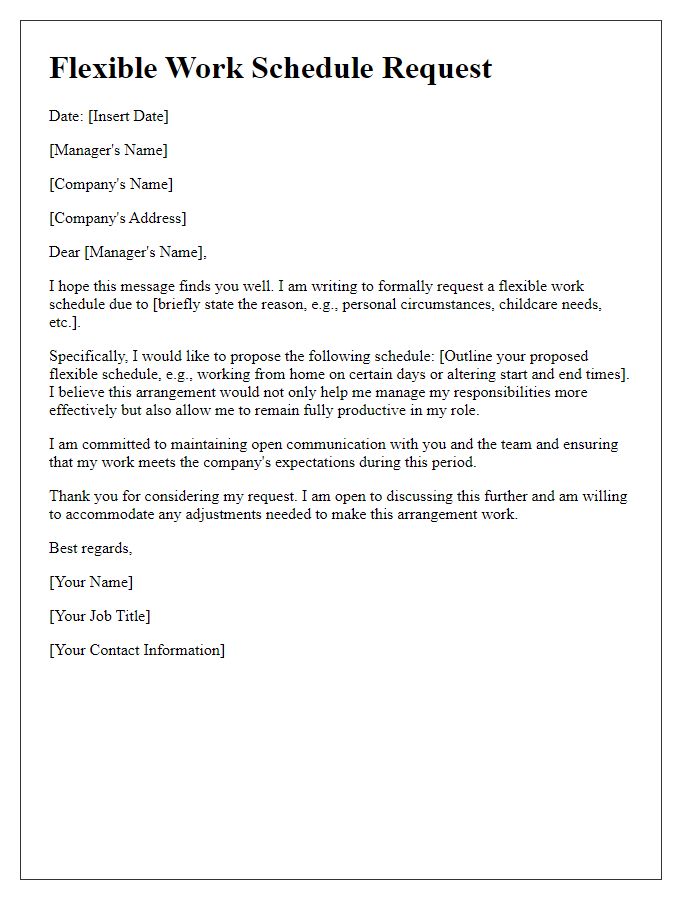
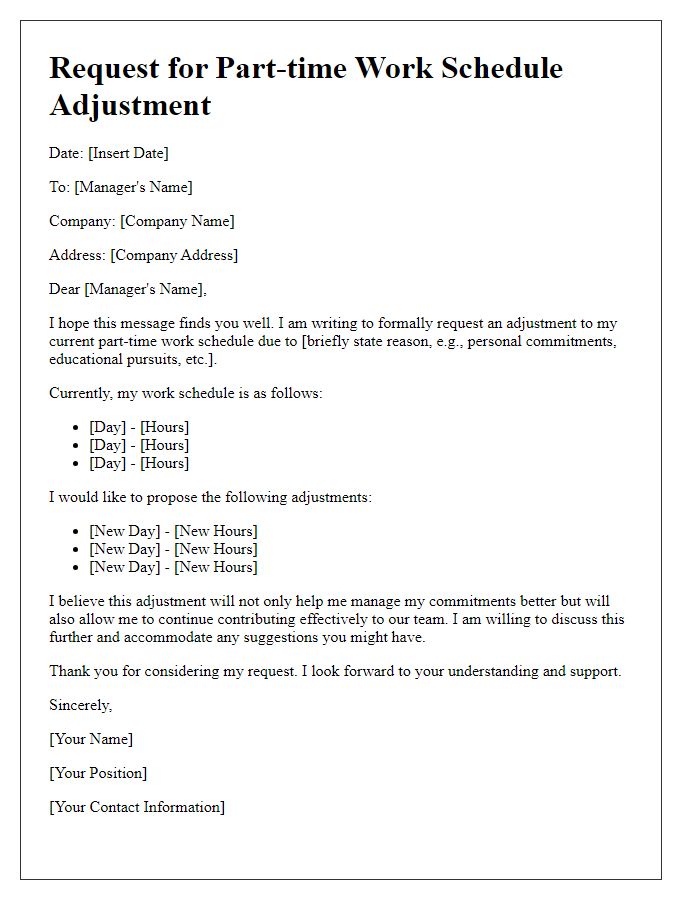
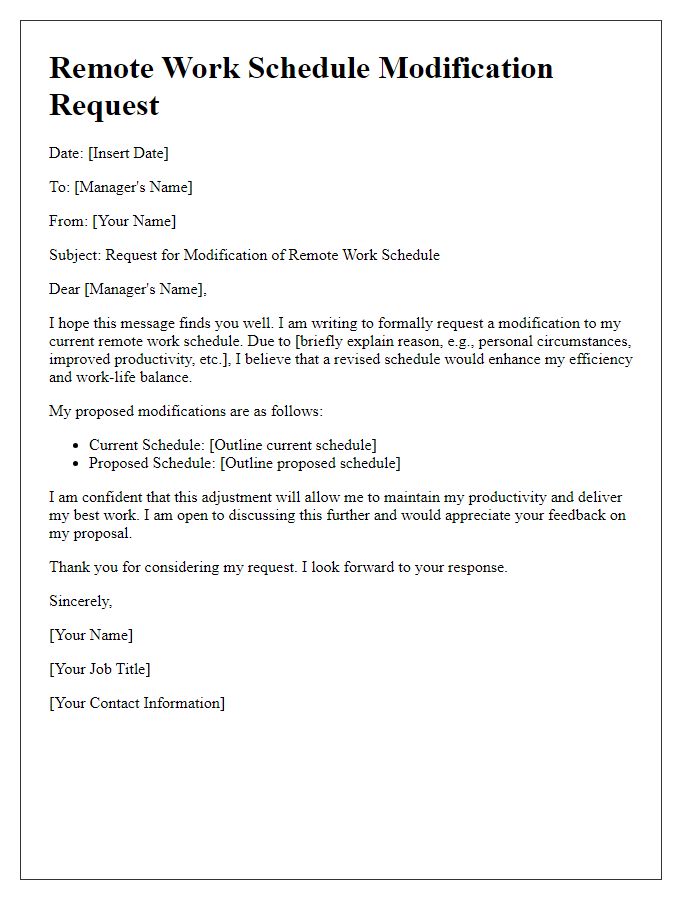
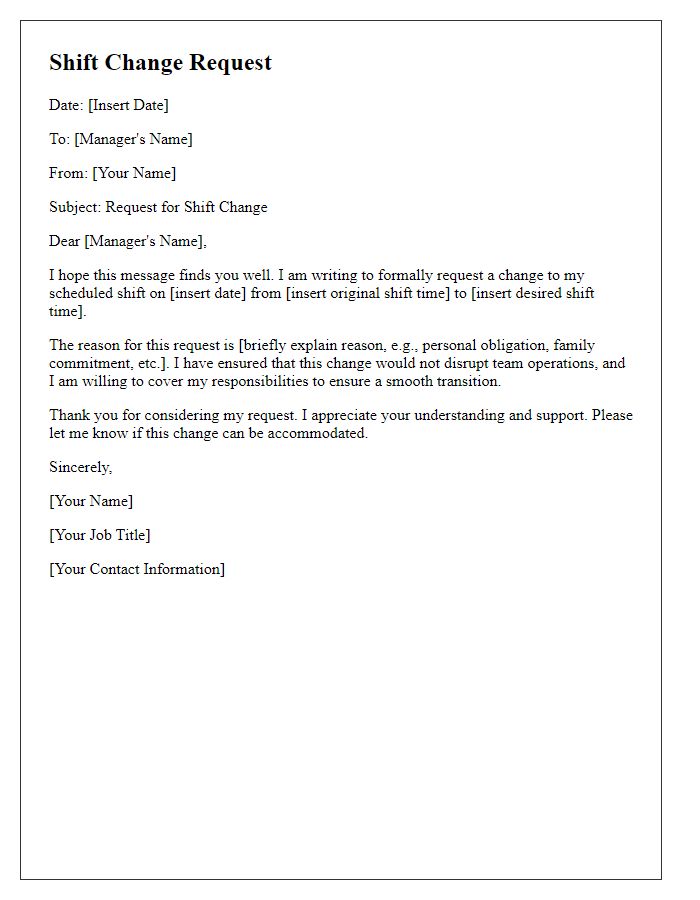
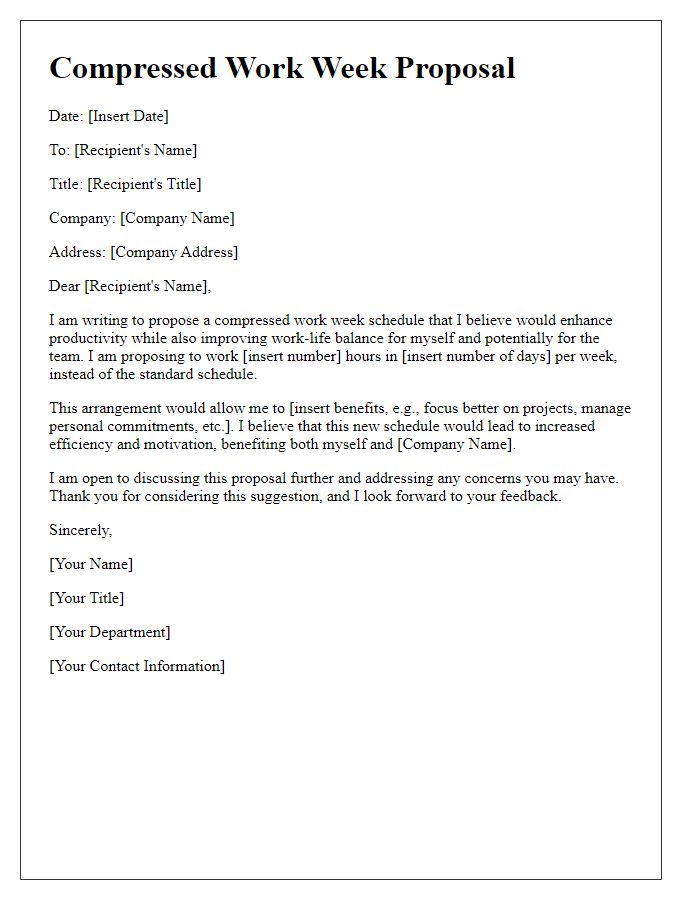
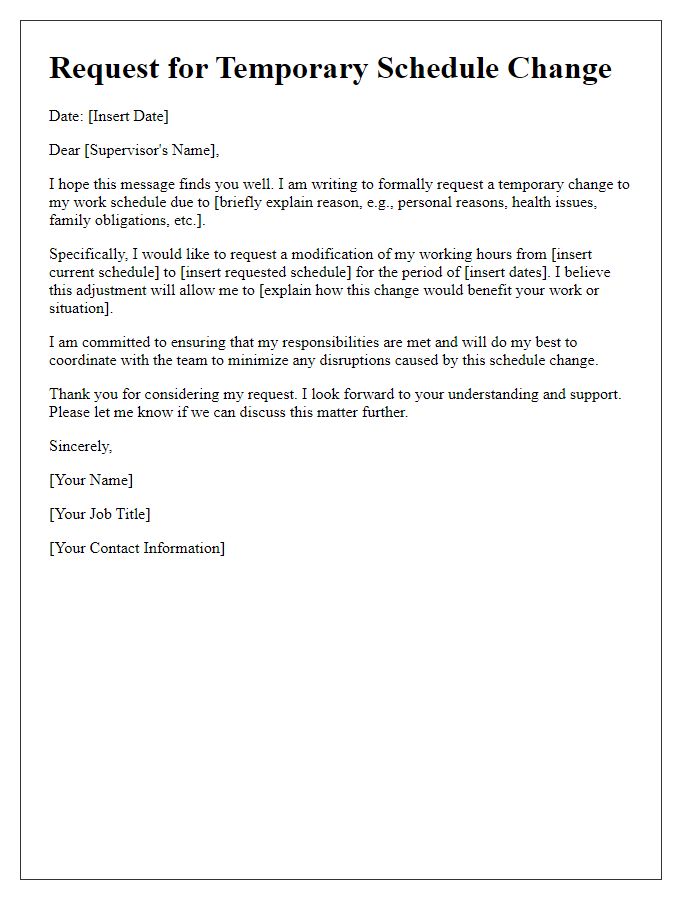
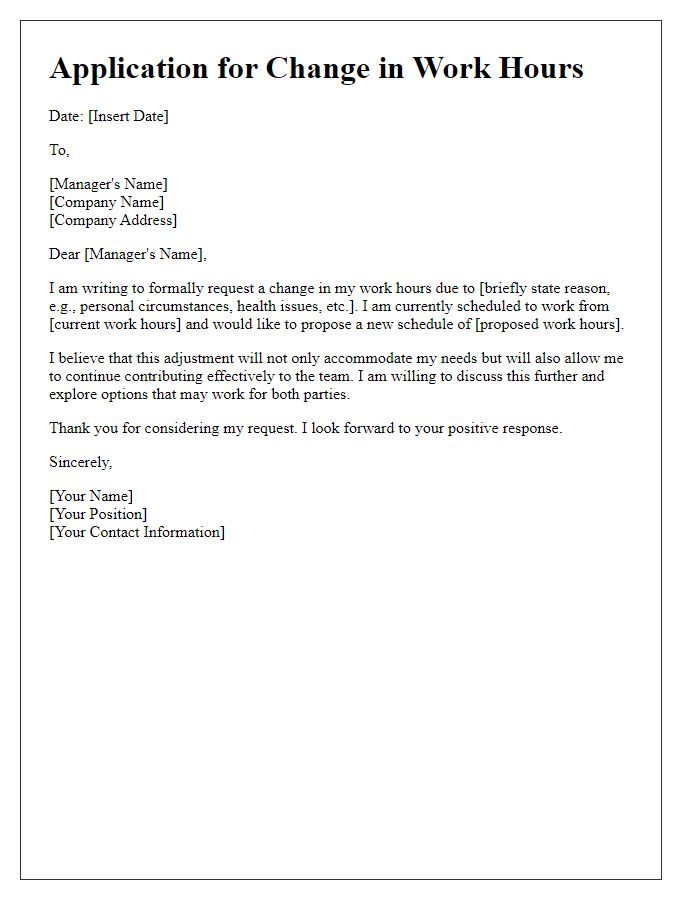
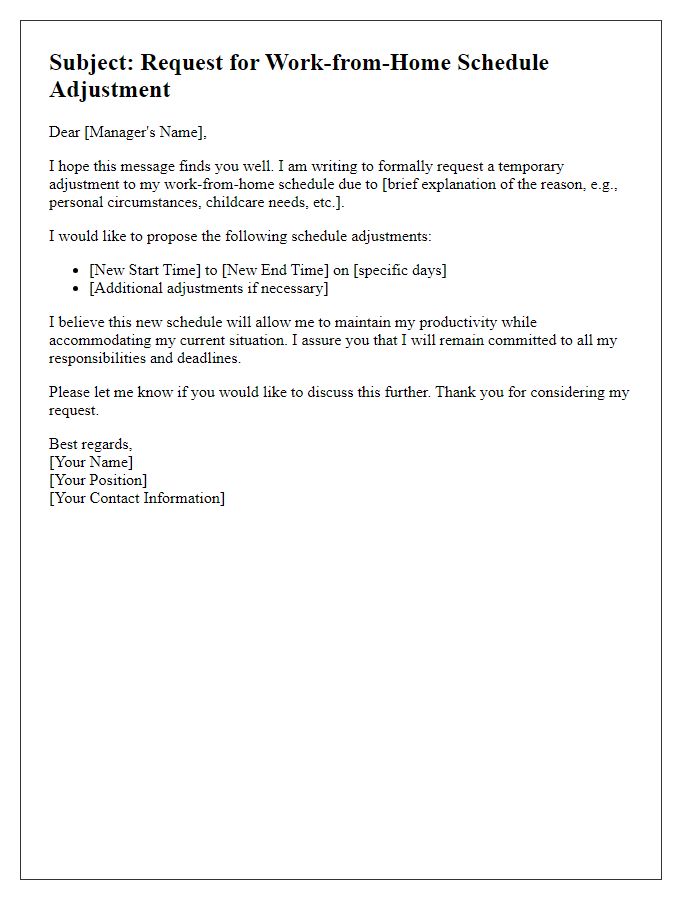
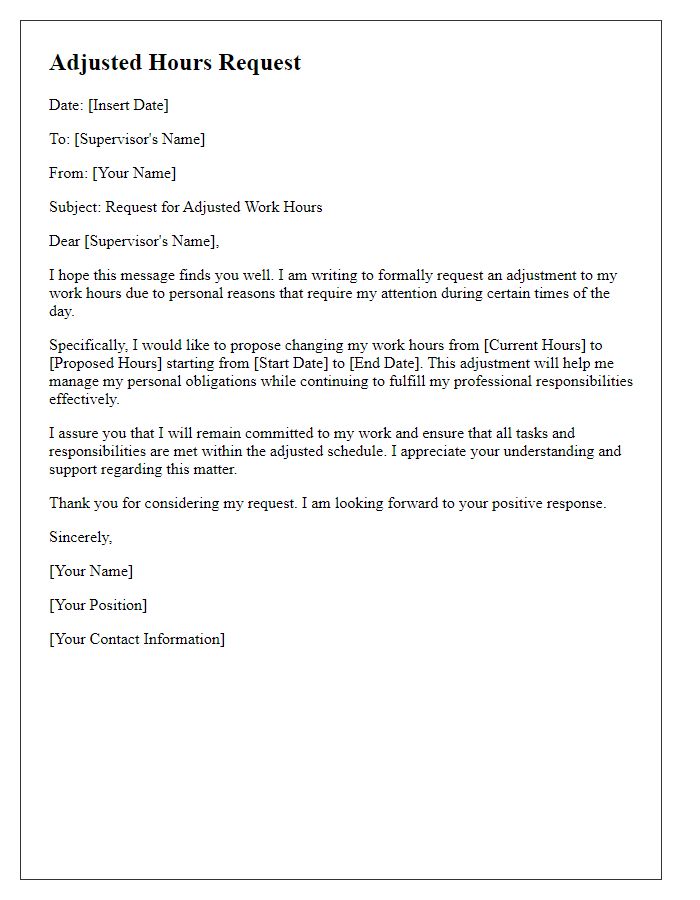
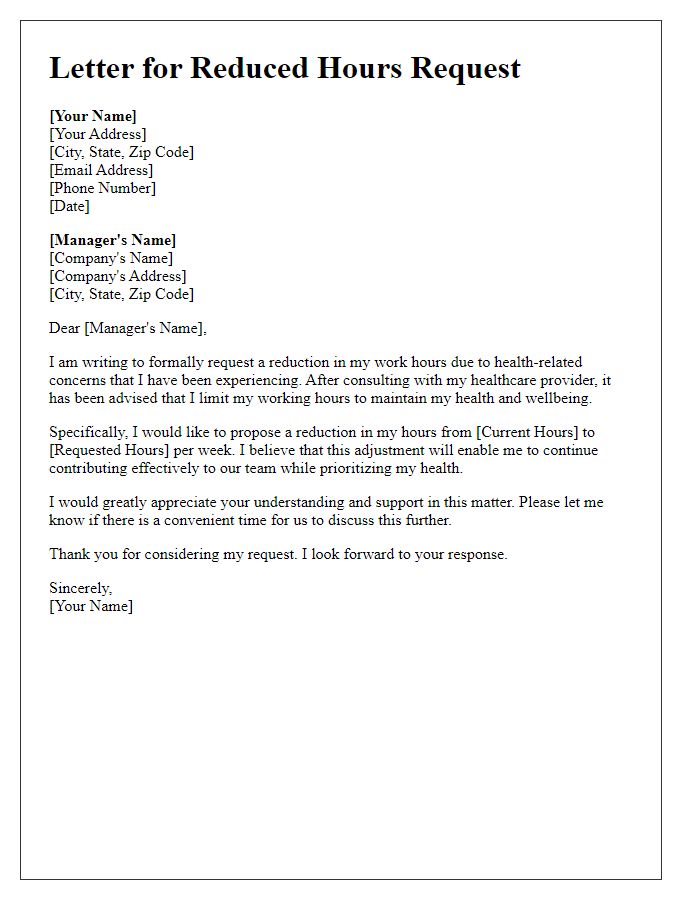


Comments